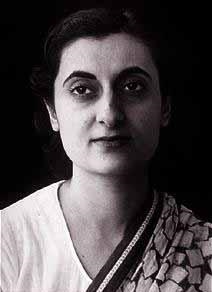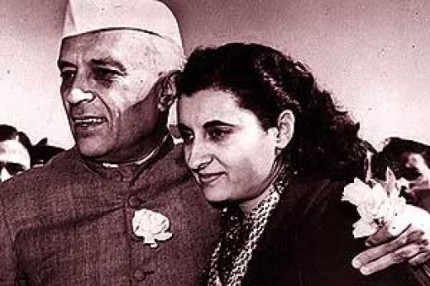Abstract
Indira Priyadarshini Gandhi was the third Prime Minister of the Republic of India for three consecutive terms from 1966 to 1977 and for a fourth term from 1980 until her assassination in 1984, a total of fifteen years. India’s only female prime minister to date, she is the world’s longest serving female Prime Minister. She was also the only Indian Prime Minister to have declared an emergency in order to ‘rule by decree’ and the only Indian Prime Minister to have been imprisoned.


When Indira returned home after the funeral of her father, Prime Minister Jawaharlal Neheru in June 1964, a cluster of reporters were waiting at the door of her Teen Murti House. “The story is over,” she said simply, assuming that with the passing away of Neheru she would depart from politics. She could not have been more mistaken. As the years have passed, Indira Gandhi’s influence and stature continued to grow. Until she was assassinated.
Indira Gandhi was born in the northern Indian city of Allahabad on November 19, 1917. She was the only child of Jawaharlal Nehru, a dominant figure in the nationalist movement and India’s first prime minister. This association placed her at the center of India’s struggle for freedom. After independence in 1947, she served as her father’s hostess and confidante until his death.
 Indira Gandhi attended Santiniketan University and Somerville College, Oxford University, in England. She married Feroze Gandhi (no relation to Mahatma Gandhi) in March 1942. Shortly thereafter they were both imprisoned for a period of 13 months for their part in the nationalist political agitation against British rule. Feroze Gandhi was a lawyer and newspaper executive and became an independent member of Parliament. He died in 1960. They had two sons, Rajiv and Sanjay.
Indira Gandhi attended Santiniketan University and Somerville College, Oxford University, in England. She married Feroze Gandhi (no relation to Mahatma Gandhi) in March 1942. Shortly thereafter they were both imprisoned for a period of 13 months for their part in the nationalist political agitation against British rule. Feroze Gandhi was a lawyer and newspaper executive and became an independent member of Parliament. He died in 1960. They had two sons, Rajiv and Sanjay.
Gandhi became president of the Indian National Congress in 1959. The Congress had led the country to freedom and had then become its major political party. She had joined the Congress in 1938 . In June 1964, following her father’s death, Gandhi became minister for information and broadcasting in the Cabinet of Lal Bahadur Shastri . In January 1966, when Shastri died, she was elected leader of the Congress party in Parliament and became the third prime minister of independent India. She assumed office at a critical time in the history of the country. A truce had ended the 1965 war between India and Pakistan only a week before. The nation was in the midst of a two-year drought resulting in severe food shortages and a deepening economic crisis with rising prices and rising unemployment. The political repercussions of these difficulties were profound. In the fourth general elections of 1967 Indira Gandhi came back to power.
She assumed office at a critical time in the history of the country. A truce had ended the 1965 war between India and Pakistan only a week before. The nation was in the midst of a two-year drought resulting in severe food shortages and a deepening economic crisis with rising prices and rising unemployment. The political repercussions of these difficulties were profound. In the fourth general elections of 1967 Indira Gandhi came back to power.
 After 20 years of political dominance, the Congress party experienced serious difficulty.Gandhi immediately set about reorganizing the party to make it a more effective instrument of national development. In 1979 she again became Prime Minister. Internal riots broke out among Muslim, Hindu, and Sikh religious sects. Sikh separatists secured weapons within their sacred Golden Temple in Amritsar, assuming religious protection. Gandhi ordered government troops to storm the temple, leading to many Sikh deaths. This led to her assassination on October 31, 1984.
After 20 years of political dominance, the Congress party experienced serious difficulty.Gandhi immediately set about reorganizing the party to make it a more effective instrument of national development. In 1979 she again became Prime Minister. Internal riots broke out among Muslim, Hindu, and Sikh religious sects. Sikh separatists secured weapons within their sacred Golden Temple in Amritsar, assuming religious protection. Gandhi ordered government troops to storm the temple, leading to many Sikh deaths. This led to her assassination on October 31, 1984.


